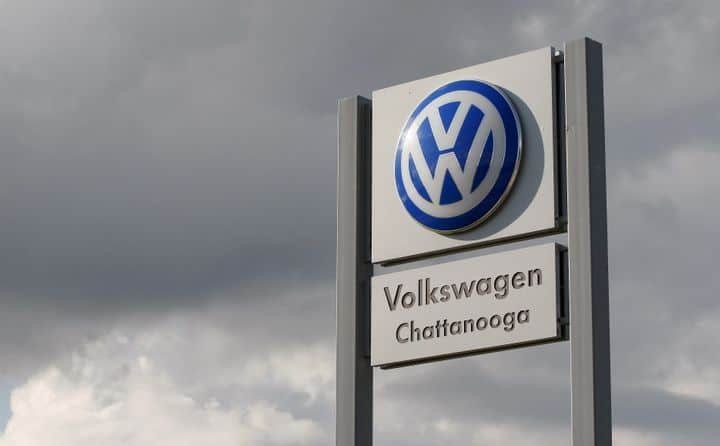
The United Auto Workers suffered another painful defeat Friday when production workers at a Tennessee Volkswagen facility narrowly voted against joining the union.
The election was the second in five years at the Chattanooga plant, where employees rejected a 2014 bid by the UAW, 712 to 626. This time, the vote was 833 to 776 against unionizing, according to a preliminary tally released by the company. The results have not yet been certified by federal regulators.
More than 1,700 workers would have been represented by the union.
Labor groups and auto industry observers around the country were closely watching the heated campaign because of its broader implications. The UAW has tried for years to unionize a Southern factory operated by a “transplant” ― a foreign automaker building cars inside the U.S.
Manufacturers have been drawn to states like Tennessee due to the lower wages and weak union presence relative to the Midwest. The Detroit-based UAW has successfully organized some auto parts facilities in the South but hasn’t managed to unionize a flagship plant like Volkswagen’s, which opened in 2011.
The election results this week do little to change the narrative of the UAW’s struggles in the South. Just last year, the union lost a lopsided election at a Nissan plant in Canton, Mississippi.
The UAW faced major headwinds in the Chattanooga vote.
Volkswagen said ahead of the election that it would remain neutral, but the company made clear to employees that it would rather have a “direct” relationship with them ― that is, it would rather not deal with a union at the plant. The company had seemed far more welcoming of the idea of collective bargaining during the previous UAW effort in 2014.
Several of Tennessee’s leading Republican politicians, meanwhile, were blunt about their strong opposition to the UAW campaign. Gov. Bill Lee, Sen. Marsha Blackburn and the county mayor all spoke out against the union, urging employees to reject it. Their message ― one that may have resonated with workers ― was that union representation would jeopardize jobs that pay above average for the area.
The politicking had echoes of the bitter 2014 union campaign, when former Sen. Bob Corker and other Republicans said future production at the plant depended on workers rejecting the union.
The UAW represents a smaller share of the U.S. auto workforce than it used to, as manufacturers have shifted to cheaper, non-union labor over the years. Making inroads with transplant facilities in the South would increase the union’s clout and help restore its sway across the industry.
Among the plant employees backing the union, many were outspoken about what they saw as the need for a collective voice to deal with management about injuries on the production line and high workloads. They said a union was the best way to force Volkswagen to address such problems.
Ashley Murray, 33, told HuffPost that she wanted better health and safety standards and limits to forced overtime. Murray said she often hasn’t found out she’ll be working an extra hour until about two hours before her shift is supposed to end.
“The line is moving so fast and we’ve got so much to do in so little time,” Murray said. “We’re overworked.”
But workers who opposed the union, like Brandi Gengler, said they thought the pay and benefits were fair enough to make negotiating through a union unnecessary. The idea of putting issues on the bargaining table made Gengler uneasy.
“I agreed to come to work for [Volkswagen] with those benefits and that hasn’t changed,” said Gengler. “They haven’t taken anything away from me.”
